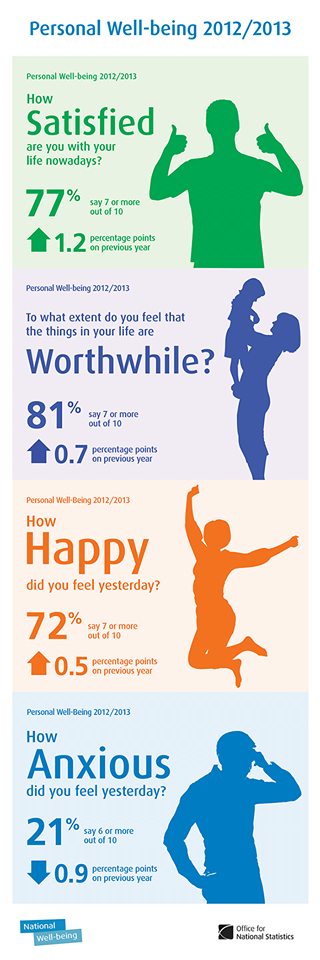|
Flourishing
Flourishing, or human flourishing, is the complete goodness of humans in a developmental life-span, that somehow includes positive psychological functioning and positive social functioning, along with other basic goods. The term is rooted in ancient philosophical and theological usages. Aristotle’s term '' eudaimonia'' is one source for understanding human flourishing. The Hebrew Scriptures, or the Old Testament, also speak of flourishing, as they compare the just person to a growing tree. Christian Scriptures, or the New Testament, build upon Jewish usage and speak of flourishing as it can exist in heaven. The medieval theologian Thomas Aquinas drew from Aristotle as well as the Bible, and utilized the notion of flourishing in his philosophical theology. More recently, the positive psychology of Martin Seligman, Corey Keyes, Barbara Fredrickson, and others, have expanded and developed the notion of human flourishing. Empirical studies, such as those of the Harvard Human Flour ... [...More Info...] [...Related Items...] OR: [Wikipedia] [Google] [Baidu] [Amazon] |
Positive Psychology
Positive psychology is the scientific study of conditions and processes that contribute to positive psychological states (e.g., contentment, joy), well-being, Positive psychology of relationships, positive relationships, and positive institutions. Positive psychology began as a new domain of psychology in 1998 when Martin Seligman chose it as the theme for his term as president of the American Psychological Association. It is a reaction against past practices that tended to focus on mental illness and emphasized maladaptive behavior and negative thinking. It builds on the Humanistic psychology, humanistic movement of Abraham Maslow and Carl Rogers, which encourages an emphasis on happiness, well-being, and Meaningful life, purpose. Positive psychology largely relies on concepts from the Western philosophy, Western philosophical tradition, such as the Aristotle, Aristotelian concept of , which is typically rendered in English with the terms "flourishing", "the good life," or "h ... [...More Info...] [...Related Items...] OR: [Wikipedia] [Google] [Baidu] [Amazon] |
Good And Evil
In philosophy, religion, and psychology, "good and evil" is a common dichotomy. In religions with Manichaeism, Manichaean and Abrahamic influence, evil is perceived as the dualistic cosmology, dualistic antagonistic opposite of good, in which good should prevail and evil should be defeated. Evil is often used to denote profound immorality. Evil has also been described as a supernatural force. Definitions of evil vary, as does the analysis of its motives. However, elements that are commonly associated with evil involve Balance (metaphysics), unbalanced behavior involving expediency, selfishness, ignorance, or negligence. The principal study of good and evil (or morality) is ethics, of which there are three major branches: normative ethics concerning how we ought to behave, applied ethics concerning particular moral issues, and metaethics concerning the nature of morality itself.''Internet Encyclopedia of Philosophy'"Ethics"/ref> History and etymology Every language has a word ... [...More Info...] [...Related Items...] OR: [Wikipedia] [Google] [Baidu] [Amazon] |
Eudaimonia
Eudaimonia (; ) is a Greek word literally translating to the state or condition of ''good spirit'', and which is commonly translated as ''happiness'' or ''Well-being, welfare''. In the works of Aristotle, ''eudaimonia'' was the term for the highest human good in older Greek tradition. It is the aim of practical philosophy-prudence, including ethics and political philosophy, to consider and experience what this state really is and how it can be achieved. It is thus a central concept in Aristotelian ethics and subsequent Hellenistic philosophy, along with the terms Arete (moral virtue), ''aretē'' (most often translated as ''virtue'' or ''excellence'') and ''phronesis'' ('practical or ethical wisdom'). Discussion of the links between ''ēthikē aretē'' (virtue of character) and ''eudaimonia'' (happiness) is one of the central concerns of ancient ethics, and a subject of disagreement. As a result, there are many varieties of eudaimonism. Definition and etymology In terms of its e ... [...More Info...] [...Related Items...] OR: [Wikipedia] [Google] [Baidu] [Amazon] |
Happiness
Happiness is a complex and multifaceted emotion that encompasses a range of positive feelings, from contentment to intense joy. It is often associated with positive life experiences, such as achieving goals, spending time with loved ones, or engaging in enjoyable activities. However, happiness can also arise spontaneously, without any apparent external cause. Happiness is closely linked to well-being and overall life satisfaction. Studies have shown that individuals who experience higher levels of happiness tend to have better physical and mental health, stronger social relationships, and greater resilience in the face of adversity. The pursuit of happiness has been a central theme in philosophy and psychology for centuries. While there is no single, universally accepted definition of happiness, it is generally understood to be a state of mind characterized by positive emotions, a sense of purpose, and a feeling of fulfillment. Definitions "Happiness" is subject to deb ... [...More Info...] [...Related Items...] OR: [Wikipedia] [Google] [Baidu] [Amazon] |
Corey Keyes
Corey Keyes is an American sociologist. He is known for his work with positive psychology. Keyes currently teaches at Emory University in Georgia. Work Keyes works in the areas of complete mental health and methods for attaining positive social relationships. He also studies the psychology of aging. Keyes is known for coining the psychological terms '' flourishing'' and ''languishing'', which describe a person's level of mental health, and has published widely in this field. He is considered a pioneer in the field of positive psychology. Keyes is a member of an advisory board for the ''World Happiness Forum'' and a member of the ''Positive Psychology Network''. His work has had wide-reaching policy implications. He has worked with the Centers for Disease Control and Prevention and his model of mental health as a complete state has been used by the Public Health Agency of Canada in a national surveillance Surveillance is the monitoring of behavior, many activities, or i ... [...More Info...] [...Related Items...] OR: [Wikipedia] [Google] [Baidu] [Amazon] |
Barbara Fredrickson
Barbara Lee Fredrickson (born June 15, 1964) is an American professor in the department of psychology at the University of North Carolina at Chapel Hill, where she is the Kenan Distinguished Professor of Psychology. She is also the Principal Investigator of the Positive Emotions and Psychophysiology Lab (PEPLab) at the University of North Carolina at Chapel Hill. Fredrickson is a social psychologist who conducts research in emotions and positive psychology. Her main work is related to her broaden-and-build theory of positive emotions, which suggests that positive emotions lead to novel, expansive, or exploratory behavior, and that, over time, these actions lead to meaningful, long-term resources such as knowledge and social relationships. She is the author of ''Positivity: Top-Notch Research Reveals the 3-to-1 Ratio That Will Change Your Life'' (2009), a general-audience book that draws on her own research and that of other social scientists. The book's thesis is largely drawn f ... [...More Info...] [...Related Items...] OR: [Wikipedia] [Google] [Baidu] [Amazon] |
Well-being
Well-being is what is Intrinsic value (ethics), ultimately good for a person. Also called "welfare" and "quality of life", it is a measure of how well life is going for someone. It is a central goal of many individual and societal endeavors. Subjective well-being refers to how a person feels about and evaluates their life. Objective well-being encompasses factors that can be assessed from an external perspective, such as health, income, and security. Individual well-being concerns the quality of life of a particular person, whereas community well-being measures how well a group of people functions and thrives. Various types of well-being are categorized based on the domain of life to which they belong, such as physical, psychological, emotional, social, and economic well-being. Theories of well-being aim to identify the Essence, essential features of well-being. Hedonism argues that the balance of pleasure over pain is the only factor. Desire theories assert that the satisfact ... [...More Info...] [...Related Items...] OR: [Wikipedia] [Google] [Baidu] [Amazon] |
Personal Development
Personal development or self-improvement consists of activities that develops a person's capabilities and potential, enhance quality of life, and facilitate the realization of dreams and aspirations. Personal development may take place over the course of an individual's entire lifespan and is not limited to one stage of a person's life. It can include official and informal actions for developing others in roles such as a teacher, guide, counselor, manager, coach, or mentor, and it is not restricted to self-help. When personal development takes place in the context of institutions, it refers to the methods, programs, tools, techniques, and assessment systems offered to support positive adult development at the individual level in organizations. Overview Among other things, personal development may include the following activities: * Social entrepreneurship or civic engagement * Participating in festivals, conferences, or conventions * Improving self-awareness * Improvin ... [...More Info...] [...Related Items...] OR: [Wikipedia] [Google] [Baidu] [Amazon] |
Mental Health
Mental health is often mistakenly equated with the absence of mental illness. However, mental health refers to a person's overall emotional, psychological, and social well-being. It influences how individuals think, feel, and behave, and how they cope with stress, relate to others, and make choices. Mental illness, on the other hand, refers to diagnosable conditions—such as depression, anxiety disorders, or schizophrenia—that disrupt a person's thoughts, mood, behavior, or functioning. It is possible for individuals with mental illness to experience periods of good mental health, just as people without a mental illness may struggle with poor mental well-being at times.[1][2] Mental health encompasses emotional, Psychology, psychological, and social well-being, influencing cognition, perception, and behavior. Mental health plays a crucial role in an individuals daily life when managing stress, engaging with others, and contributing to life overall. According to the World Heal ... [...More Info...] [...Related Items...] OR: [Wikipedia] [Google] [Baidu] [Amazon] |
Subjective Well-being
Subjective well-being (SWB) is a concept of well-being (happiness) that focus on evaluations from the perspective of the people who's lives are being evaluated rather than from some objective viewpoint. SWB measures often rely on self-reports, but that does not make them SWB measures. Objective measures of wellbeing are also sometimes measured with self-reports and SWB can also be measured with informant ratings. Ed Diener defined SWB in terms of three indicators of subjective well-being: frequent positive affect, infrequent negative affect, and cognitive evaluations such as life satisfaction." SWB includes two different subjective measures of well-being that are based on different definitions of happiness. Experiences of positive affect (mood, emotions), and experiences of negative affect (mood, emotions) can be used to create a measure of the amount of positive and negative affect in people's lives. These hedonic balance scores measure subjective wellbeing from a hedonistic ... [...More Info...] [...Related Items...] OR: [Wikipedia] [Google] [Baidu] [Amazon] |
Virtue
A virtue () is a trait of excellence, including traits that may be morality, moral, social, or intellectual. The cultivation and refinement of virtue is held to be the "good of humanity" and thus is Value (ethics), valued as an Telos, end purpose of life or a foundational principle of being. In human practical ethics, a virtue is a disposition to choose actions that succeed in showing high moral standards: doing what is said to be right and avoiding what is wrong in a given field of endeavour, even when doing so may be unnecessary from a utilitarianism, utilitarian perspective. When someone takes pleasure in doing what is right, even when it is difficult or initially unpleasant, they can establish virtue as a habit. Such a person is said to be virtuous through having cultivated such a disposition. The opposite of virtue is vice. Other examples of this notion include the concept of Merit (Buddhism), merit in Asian traditions as well as (Chinese language, Chinese ). Etymology The ... [...More Info...] [...Related Items...] OR: [Wikipedia] [Google] [Baidu] [Amazon] |









